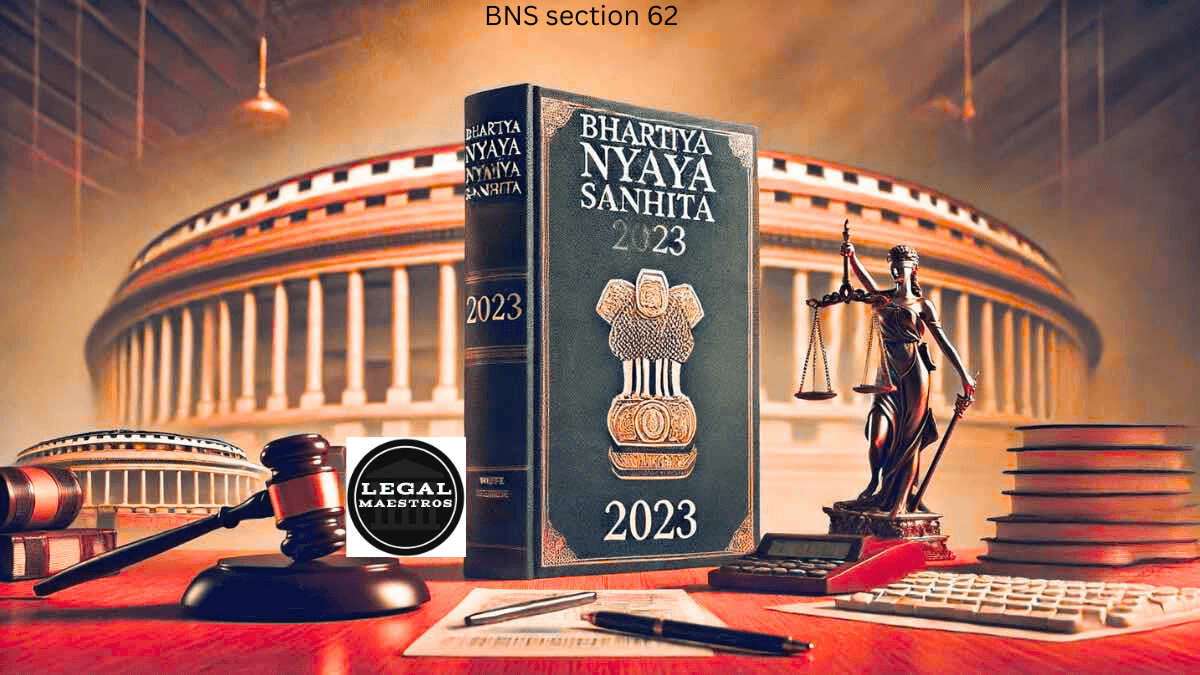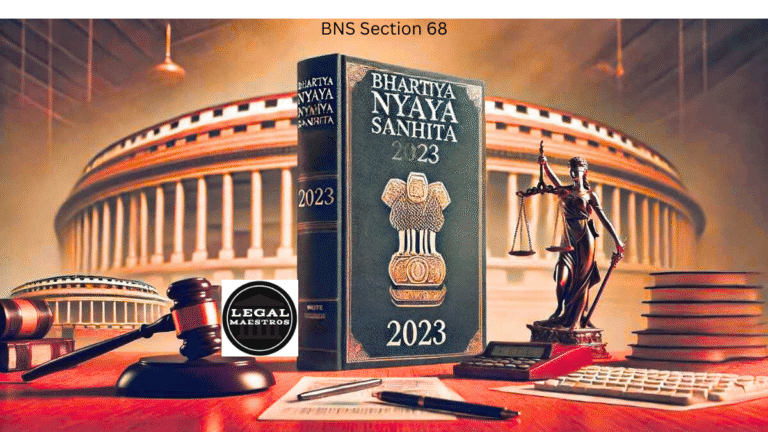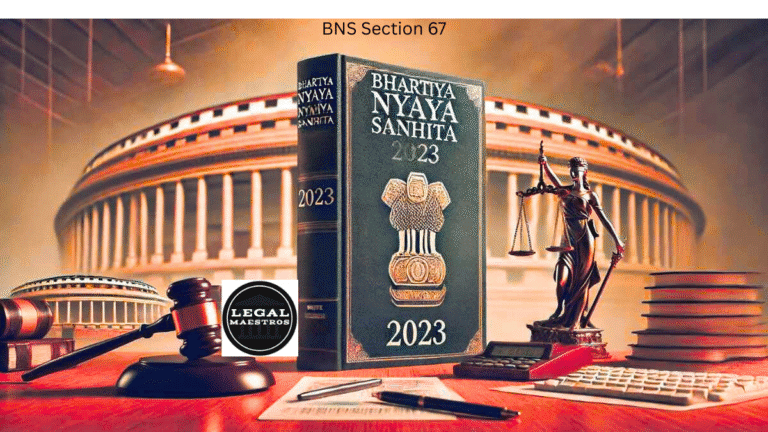
Punishment for Attempting a Crime under Section 62 of Bharatiya Nyaya Sanhita, 2023
Introduction
The Indian Penal Code (IPC) has been replaced with the Bharatiya Nyaya Sanhita (BNS) 2023, which is India’s new framework for criminal law. One of the most significant ideas in the field of criminal law is the concept of punishment for attempting to commit a crime, which is discussed in Section 62 of the BNS. This provision assures that the individual who attempts to commit a crime can still be punished, even if the task of committing the crime is not finished. It is predicated on the notion that a person who makes an attempt to commit an offense, particularly one of a serious nature, ought to be held accountable for their actions.
What is meant by the term “attempt to commit a crime”?
The term “attempt” refers to the act of attempting to conduct a criminal act but failing to do so. This provision applies in situations in which an individual makes an attempt to do an act that, according to the BNS, would be deemed a criminal offense and then takes some action in order to make the act happen. Even if the individual did not succeed in committing the crime, they may still be subject to punishment if the attempt was connected to a felony that carries a sentence of life imprisonment or any other type of imprisonment. A fine, if applicable, may be imposed in addition to the sentence, which may be up to half of the maximum punishment that is imposed for the actual offense.
When there is no explicit section in the law that already prescribes a punishment for the attempt, this rule is the only one that applies. In the event that the law already provides a distinct punishment for attempting to commit a certain crime (for example, attempting to kill), then that particular regulation will pertain to the situation.
For any queries or to publish an article or post or advertisement on our platform, do call at +91 6377460764 or email us at contact@legalmaestros.com.
These are some examples to help you understand the law.
Take a look at two straightforward examples that are provided by the legislation itself in order to provide a clear explanation of this topic.
The first illustration shows that A makes an attempt to steal some diamonds by cracking open a box. Following the opening of the box, however, he discovers that it does not contain any diamonds. The fact that A shattered the box because he believed it contained diamonds is evidence that he committed the crime, even though nothing was taken from it himself. It can be concluded that A is responsible for attempting to steal and will be penalized according to Section 62.
In the second illustration, A puts his hand inside Z’s pocket in an attempt to pick Z’s pocket. Z is holding the pocket. Nevertheless, Z did not have anything in his pocket, thus there was no theft. The fact that A put his hand into the pocket, which is an act that constitutes theft, is sufficient for him to be penalized under this provision because it constitutes an act that constitutes theft.
For any queries or to publish an article or post or advertisement on our platform, do call at +91 6377460764 or email us at contact@legalmaestros.com.
For More Updates & Regular Notes Join Our Whats App Group (https://chat.whatsapp.com/DkucckgAEJbCtXwXr2yIt0) and Telegram Group ( https://t.me/legalmaestroeducators )
What Is the Significance of This Law
This regulation is particularly significant because it stops individuals from successfully evading punishment simply due to the fact that they were unable to carry out their criminal act. The police and the courts are also able to take action at an earlier stage as a result of this. For instance, a person might be apprehended before they commit a crime such as murder, robbery, or impersonation; but, even though the crime did not take place, the law nonetheless punishes the effort to do the crime. The protection of society and the prevention of individuals from even attempting to conduct significant offenses are both aided by this.
Background in the law and an understanding of the internet
It is normal practice in criminal justice systems all around the world to punish those who attempt to commit a crime. Similar regulations were in place in India under Section 511 of the previous version of the Indian Penal Code. This guiding idea is maintained in Section 62 of the BNS, which also brings it into conformity with the revised wording and structure of the new law. According to legal platforms such as KanoonGPT and PRSIndia, this clause assures that the seriousness of a criminal conduct is acknowledged even if the intended consequence does not occur, as long as there is apparent attempt to do it. This is the case even if the criminal act does not result in the planned behavior.
For any queries or to publish an article or post or advertisement on our platform, do call at +91 6377460764 or email us at contact@legalmaestros.com.





![Research Assistantship @ Sahibnoor Singh Sindhu, [Remote; Stipend of Rs. 7.5k; Dec 2025 & Jan 2026]: Apply by Nov 14, 2025!](https://legalmaestros.com/wp-content/uploads/2025/11/Gemini_Generated_Image_s0k4u6s0k4u6s0k4-768x707.png)
![Karanjawala & Co Hiring Freshers for Legal Counsel [Immediate Joining; Full Time Position in Delhi]: Apply Now!](https://legalmaestros.com/wp-content/uploads/2025/11/Gemini_Generated_Image_52f8mg52f8mg52f8-768x711.png)
![Part-Time Legal Associate / Legal Intern @ Juris at Work [Remote]: Apply Now!](https://legalmaestros.com/wp-content/uploads/2025/11/ChatGPT-Image-Nov-12-2025-08_08_41-PM-768x768.png)
![JOB POST: Legal Content Manager at Lawctopus [3-7 Years PQE; Salary Upto Rs. 70k; Remote]: Rolling Applications!](https://legalmaestros.com/wp-content/uploads/2025/11/ChatGPT-Image-Nov-12-2025-08_01_56-PM-768x768.png)